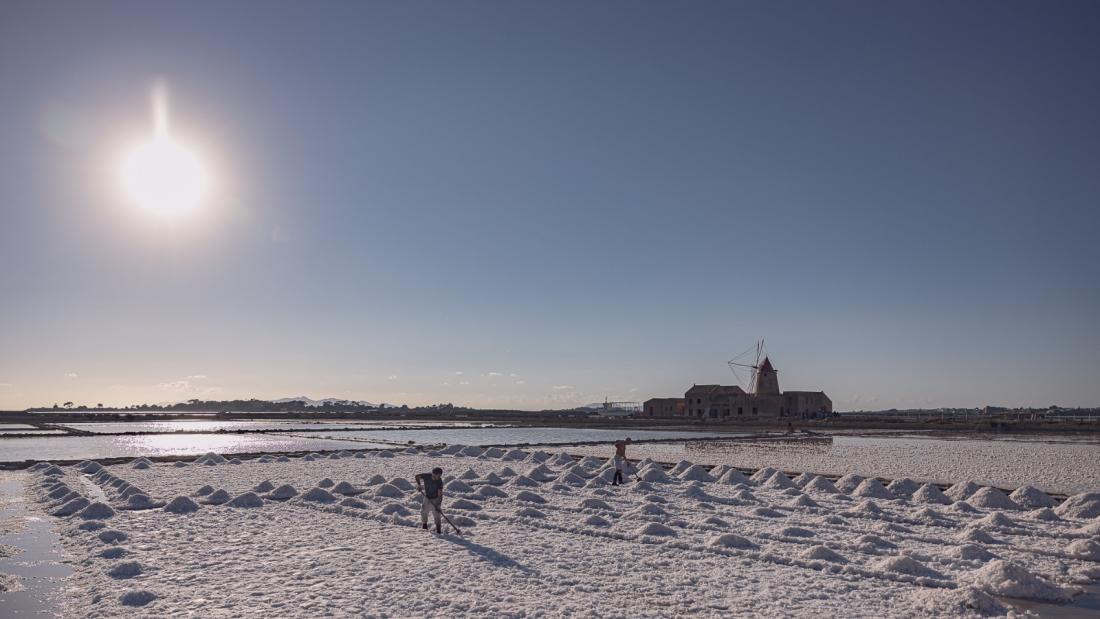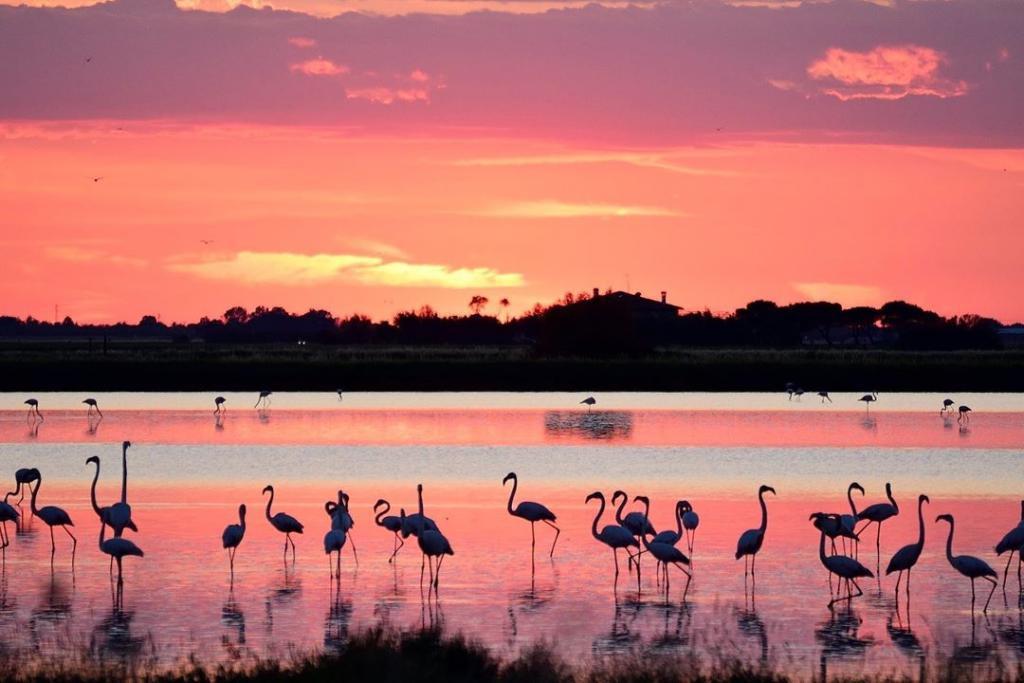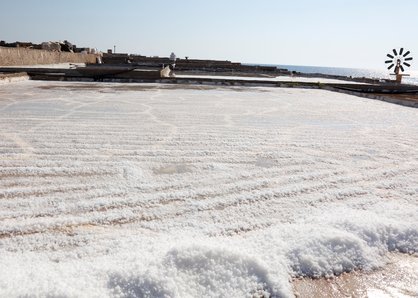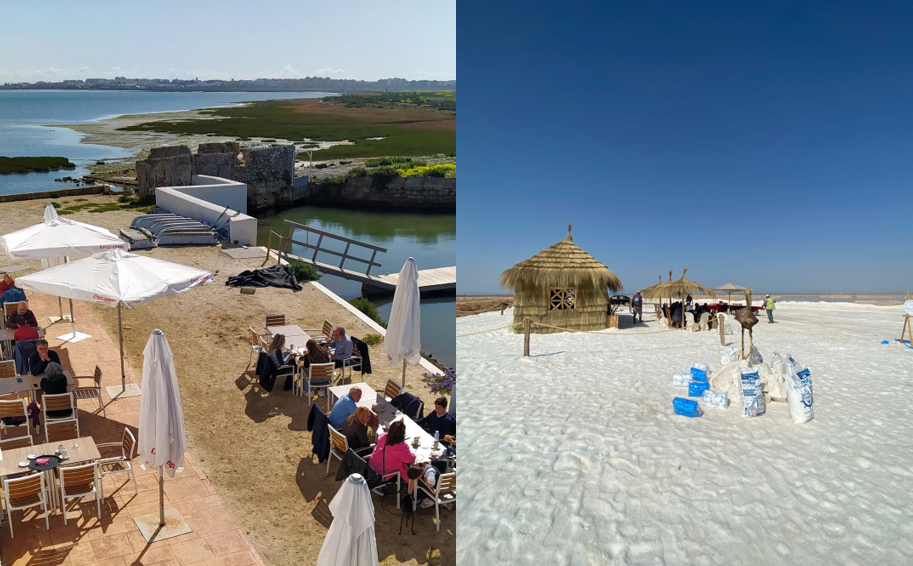MedArtSal: a thousand good reasons for artisanal salinas to adopt a proper ecological management strategy

Ecological land Management for a better environment and quality salt
The ENI CBC MED MedArtSal project believes in the need to coordinate human salt extraction activity with ecosystem conservation. A comprehensive understanding of the ecosystem is essential to develop the scientific knowledge that leads to its conservation. Indeed, salinas are home for a range of fauna and flora. They attract for example shorebirds which find the essential requirements to nest and reproduce.

Thanks to the work in the project, the members of the partnership have become aware of the importance of applying a strategic land planning to guarantee a quality product. To reach that goal it’s necessary to preserve the salinas’ environment - natural resources and geographic territory, and the basins’ functionality, by ensuring a safe circulation of water and their protection from winter high waves and erosion, because they are in direct and indirect contact with sea water.

But salinas are vulnerable to contamination and effects of climate change such as sea level rise. Also, the use of pesticides and other pollutants in the surrounding intensively cultivated areas affect the water quality. Thus, it’s important to establish a strategic management plan to control the human activities such as fishing, grazing, encourage organic agriculture and zero waste living. But it’s also vital to equip the local communities with the ability and tools to respond to such a variety of natural and human threats.
Ecological salt as an added value
Salinas have always helped to cover people’s needs of sodium chloride and ecological salt is certainly an added value, especially when it comes to marketing the product. Namely, the Mediterranean ecological salt can easily compete within the world salt industry. It has an identity, nutritional value and high quality.
Artisanal salt-making applies light machinery, which reduces the risk of contamination in the salt, as well as the need to refine it. It therefore helps to conserve its essential and non-essential trace elements and natural nutrients, while lessening the impact on salinas’ rich yet fragile ecosystems.
Furthermore, in recent years, consumers are heading towards more responsible healthier choices. Satisfaction is often found in natural products that come from a natural preserved environment, as opposed to the conventional consumption of industrial products. Moreover, consumers are becoming interested in discovering the “history” and people behind the production. MedArtSal is supporting these consumer trends by involving salinas where the artisanal salt production supports historical and cultural traditions, and heritage.
For example, in several of the salinas that are involved in the project, the salt has been extracted since the Phoenician times (and possibly earlier). In fact, remains of ancient basins are still visible in places. In addition, local communities have strong ties with these traditions and find pride in the good quality of a product made in their territory.
Ecological Management of Salinas for a good quality of salt
The MedArtSal project allowed to rediscover a reality of salinas, placed in the open air, often in a fascinating historical context stretching along the Mediterranean. This is the case of the salinas in Spain, Italy, Tunisia and Lebanon, several of which are pilot sites in MedArtSal. Their use dates back to centuries. However, the difficulties they confront on the environmental levels threaten their continuity hence the quality of the extracted salt and put at risk the local communities’ wellbeing. Ecological management of salt basins and their surrounding areas is an approach that aims to safeguard the ecosystem to generate a good quality of water consequently an ecological salt in order to ensure sustainable development.
Ecological Management to develop sustainable tourism
The landscape of the salinas and their habitats are also a magnificent source of inspiration. The Ecological management model aims to develop strategies of sustainable tourism that promote the natural and cultural aspects in order to safeguard the Salinas, while contributing to the long-term preservation of these ecosystems. At the same time, it highlights the quality of the salt produced ecologically. By offering visitors the possibility of enjoying the natural legacy in a responsible way, several of the salinas in MedArtSal are supporting the requirements for the conservation of these habitats.

Touristic services and activities, such as trekking along the salinas, bird watching, cycling etc., are not only recreational ones, but can economically empower the local communities as well. Also, instructive activities are means to motivate public awareness of the salinas natural values and the salt, such as information panels, eco-museum that reenacts the technics of salt production and the history of the sites, and visits to the ancient basins (if any). Also combining the touristic activity with the ecological salt production, by suggesting gastronomy course is surely a winner.

The ecological management approach combines instructions, measures and project proposals that arise from information collected through surveys to understand the needs of salinas and their habitat, together with the requirements to extract a good quality of salt. It will eventually impact the producers’ and local communities’ wellbeing in the long term. Such actions are coordinated with all the involved parties, throughout a network that can functionally support the sustainable development Mediterranean salinas, in alignment with the SDGs.









